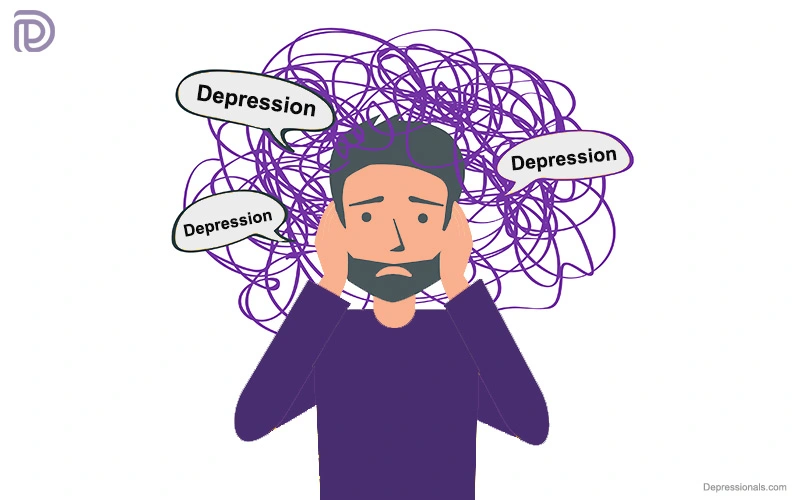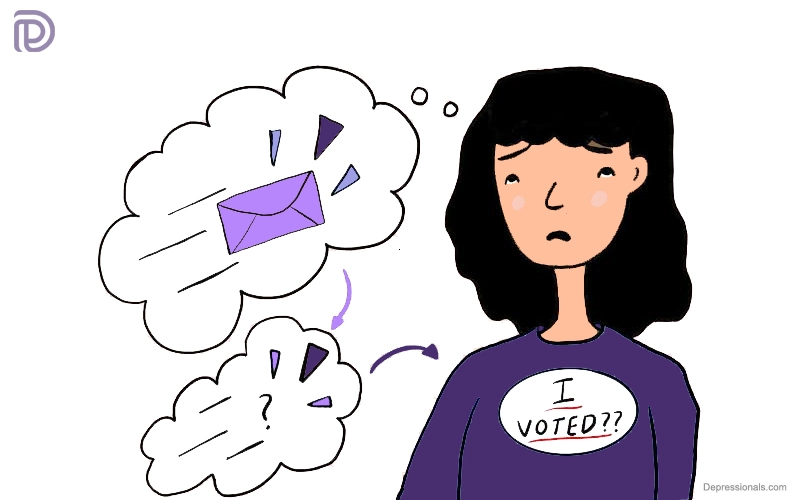You must know how to deal with teenage depression because your teenager is in danger. Teenagers are known for their lack of response when you speak with them, sleepiness unless you intervene, and preference for computers and phones over face-to-face interactions.
Teens typically act like this, but it can also be a sign of depression. You may wonder if sudden mood changes in your teenager are due to mental health symptoms or just a normal teenage mood swing.
Teenagers with depression usually exhibit the following symptoms:
- Unusual irritability
- Angry outbursts
- Lethargy and fatigue
- Stomachaches or pains
- Having trouble concentrating
- Feeling disinterested in socializing
- Not caring about school
- Criticism of oneself
- Discussing death or suicide
The following signs may indicate depression for a child if they’ve been present daily for more than a week or two. Here are some suggestions for how to intervene gently.
Related: How to Get Out of a Depressive Episode
How to cope with teenage depression
You can follow these steps to deal with teenage depression:
1. Keep asking questions (and don’t give up).
Set up a quiet, private conversation time. When confronting two parents at once, your child might feel overwhelmed or in an atmosphere of conflict. In that case, it may be best to approach the subject without both parents present.
Please explain the behavior that is troubling you:
- You don’t seem to have spent a lot of time with your friends lately, so I wondered why.”
- “You sleep a lot more than you usually do.”
- “I notice you get angry so easily these days.”
- It seems like you haven’t been putting much effort into your homework lately.”
You can then ask open-ended questions:
- How did the change affect your friendships?
- Why are you upset?
- What’s troubling you?
- Are you thinking about death?
It is not true that asking someone about suicide will lead them to the idea. It is easier to get your child the help they need when you ask about his or her suicidal thoughts.
When someone is struggling with mental illness, it is completely normal to feel scared and want them to see a professional as soon as possible. However, it can be helpful to talk to them first in order to get a better idea of what’s going on.
Do not give up if they do not give you an answer the first time. Remember to tell them that depression is a common mental health condition, not something they choose, fail at, or can control on their own.
Read: Childhood Depression
2. Be ready to listen
You can help them feel heard by using active listening once they open up. If you’re working, meal planning, or preparing kids for bed, try to finish your tasks as soon as possible.
When people suffer from depression, they can feel like burdens on their loved ones. It means they might treat your perfectly reasonable request, “Just 5 minutes,” as a rejection and be hesitant to contact you again.
Take a moment to explain what you’re doing if you can’t stop. My full attention is devoted to you, but I need to take care of something first. Within 45 minutes, I’ll be finished, and then I’ll be able to focus on you.”
Talk when it’s appropriate:
- Make sure you pay full attention to them.
- Please do not interrupt, finish their sentences, or fill in their pauses. It’s okay if they take a while to say what they have to say.
- Concentrate on what they are saying, not on your reaction.
- Analyze what they have said to ensure you comprehend it. You seem hopeless and depressed about life, and you don’t have the energy to do anything. Is that correct?
- Ask for clarification if you are unsure.
It’s possible that you don’t fully understand their pain, but try not to invalidate or minimize it by saying things like:
- Oh well, it’s not that big of a deal.
- Everyone goes through it occasionally.
- My teenage years were full of mood swings, but I outgrew them.
Be compassionate and validate instead:
- I can understand how those thoughts overwhelm you.
- I am sure it’s painful, but you don’t have to deal with it alone. My support is here for you.
- I can imagine how tired you must feel from feeling sad all of the time. It must be exhausting.
Read: Loneliness and Depression
3. Provide them with support
Providing your child with compassionate guidance and support can make a big difference, but it is often best to seek professional help when symptoms are severe.
When they don’t want to go to therapy at first, tell a school counselor, family pediatrician, or favorite teacher so they can get used to the idea. When they are made aware that others are encouraging them to consider therapy, they might be more inclined to do so.
It may also be helpful to talk over what happens in therapy. If they seem worried about hospitalization or medication, explain that a therapist will work with them without judgment, listen to their thoughts and offer support.
Moreover, you can suggest that although medication can relieve severe symptoms, the patient has other treatment options as well. You can also help to keep them busy in physical activities to deal with teenage depression.
Read: Situational Depression
4. Cut them some slack
Staying active and participating in household tasks can help your teen feel supported. Nevertheless, take into account that they may not feel like doing much at times.
Depressive disorders are real illnesses when someone has the flu, you would let them off of chores and schoolwork, right? Even if they are depressed, they can still feel lethargic and unable to put in the effort they usually do.
Here are some examples:
- Find it difficult to concentrate
- Go slower than usual
- Berate themselves for making mistakes
Provide gentle reminders instead of criticizing forgetfulness and encourage them to do their best.
You should avoid making them feel stressed by saying stuff like, “College applications are due next month,” or “Aren’t you supposed to study for your finals?” There’s a good chance that they’re already feeling the pressure – and may even be blaming themselves.
Provide homework help and find ways to manage tasks more effectively.
You might do the following if the student has a research project:
- Assist them in brainstorming topics
- Discuss what to include in the outline
- Consult the library for source materials
Related: How to Overcome Depression
5. Make changes as a family
Changing your lifestyle can be beneficial for reducing depression symptoms.
Here are some suggestions:
- Get more exercise
- Eat healthy meals regularly
- Get plenty of sunlight
- Set a regular bedtime
- Make sure you wind down at night
Changes like these can benefit everyone in your family without singling anyone out. You can also increase family time through new habits, which will lead to your teen feeling more connected and supported.
Try the following:
- Walk together after dinner.
- Before bedtime, you should not use any electronic devices. Take turns playing a board game, solving a puzzle or listening to an audiobook.
- Prepare meals for your family together whenever possible. Let the kids help you prepare meals. Try creating new recipes with each other.
- Ensure everyone goes to bed early enough to get enough sleep. Teenagers should sleep between eight and ten hours a night.
Read: How to Help Someone with Depression
6. Encourage supportive relationships
Even if they’re struggling, your teenager can stay socially connected by maintaining important friendships.
Socializing can be temporarily relaxed if you consider it. Unless their symptoms significantly improve, you might make some exceptions until they can sleepover or hang out late on school nights.
Sleepover conditions may include helping with dinner or doing schoolwork.
A new hobby or activity is also worth encouraging, like taking guitar lessons, art classes, or sports. Performing acts of kindness, such as helping around the neighborhood, can also ease depression symptoms.
Read: What is a Toxic Relationship?
Avoid these things
Avoid the following things to deal with teenager depression:
1. Criticism and punishment
If your teen fails an exam or doesn’t do their homework, you might ground him/her, limit their TV time or take away their phone.
There is no “free pass” for misbehavior when it comes to depression, but it is important to distinguish the effects of depression from illegal behavior. They might actually be more likely to isolate themselves if their phone is taken away.
Instead:
- Encourage them to keep trying and let them know you understand their difficulties. Consider asking them to invite a friend to play games with, study together, or go outside as an alternative to screen time.
- Be collaborative in finding solutions. If you are feeling under the weather, you might say “I know it is difficult to keep up with chores.”. “How do you think you will manage?”
- Keep them in your thoughts and let them know you love them.
Read: Double Depression Disorder
2. Judging self-harming behaviors
When you find out your teenager has begun cutting themselves or injuring themselves in some way, it can be very distressing for you. It is important to remember that self-harm is not a sign of suicidal thoughts.
Initially, it may be instinctive to clean out their room, to throw away self-harm tools, to check on them every day, or to make sure they are always within your sight. But these actions often shame them, driving them further away from you.
The best response is a compassionate one without judgment:
- What causes you to want to hurt yourself? Tell me more about that.
- I know you’re in a lot of pain, but I’m concerned about your safety. Would it be possible to discuss alternative solutions?
3. Taking things personally
The progress your child is making in therapy may not always be shared with you or expressed in their feelings. While it’s good to know they’re improving, pushing them will make them feel uncomfortable and less likely to speak.
If you experience side effects from treatment or have recurring distressing thoughts, you should be aware of them. Otherwise, let them know you are available whenever they are ready to talk and give them the opportunity to share when they are ready. This is the best approach to dealing with teenage depression. Make yourself like home.
Read: Atypical Depression
When you are ready to help immediately
Not everyone who is depressed wants to take their own life. Suicidal thoughts are common among many people, but they rarely lead to suicide attempts. Early treatment is crucial to dealing with teenage depression, don’t let it go. So, you need to take suicide seriously whenever you hear it mentioned.
If your child exhibits any of the following symptoms, you need to seek professional help right away:
- Telling stories or writing poetry about dying
- Participating in risky or reckless behavior
- Desiring an end to their suffering
- Withdrawing from social interaction
- Claiming that their presence would harm others
- Letting go of possessions
When you hear someone is considering suicide:
- Follow any crisis or safety plans the client has made in therapy.
- Ask the therapist how to proceed.
- You can also request 24/7 crisis support by texting Crisis Text Line (text HOME to 741741) or calling the National Suicide Prevention Lifeline (800-273-8255).
- Send them to the hospital for help.
Whenever someone is in crisis, do not leave them alone and do not let them access any weapons or medications.
Check your nearest: Mental Help Resources
Final words
Your child knows when something isn’t right, so you may be able to tell when something is wrong. Discuss getting help for depression if they seem down or irritable constantly. Also, be aware him/her of how to deal with teenage depression.
Make sure to emphasize your commitment to their success by stating that you’re on their side. The person might dismiss you, but what you say might make a difference.






Thanks for helping me with my analysis it was a huge aid when I’m fighting with my time to finish it. Good job I am waiting to be graded but the assignment looks all right. I am reviewing it as well as will return to you soon. Many thanks.
The information you have provided is very useful to me.